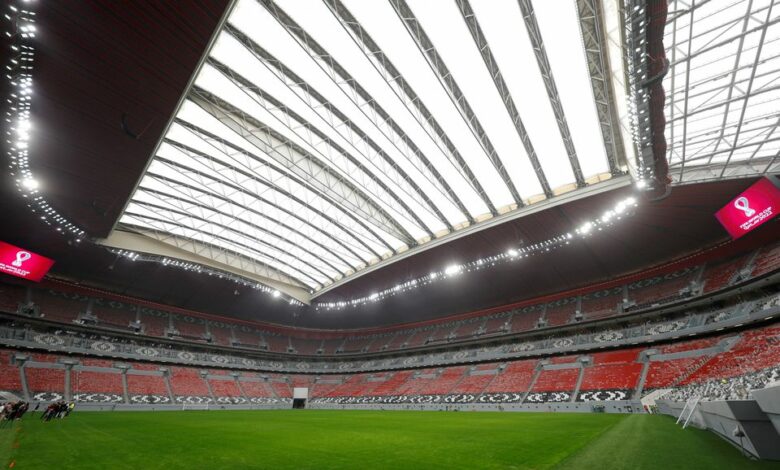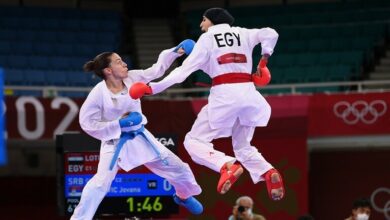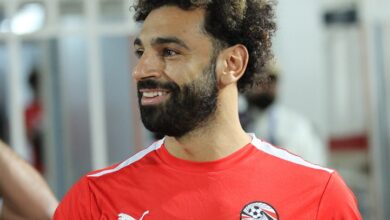
Paris is an attractive city year-around.
I was visiting for two nights staying at the George V, a stone’s throw from the Champs-Élysées.
My long-standing friend Pierre Lamont suggested a meeting at the Fouquet’s, the famous upscale brasserie on the corner of the Champs-Élysées and Avenue George V. I confirmed that I would be there at four pm and I started walking from the hotel at 3:45pm as it was a short walk.
It was cloudy and there was a bit of a drizzle, but I had a raincoat on and an umbrella. I took my time and did a bit of window shopping.
I arrived on time and there was Pierre standing up at a table full of friends I had known for years.
What a surprise!
Hussein Nashet, a friend from Cairo who immigrated to Paris years ago was an architect; Raouf Touma, an old school buddy from our soccer days who lives in Cannes most of the year and is a fund manager; Michelle Laurent, a former professional soccer player and now a well–known coach; Hala Jono, a Moroccan fashion designer and shop owner in Paris; and finally Al Kirkland, an American friend, investor who lives in a chateau in Bordeaux where he has a famous vineyard.
After hugs and a warm welcome, we all sat down. Though it was early, they were all sipping Al’s wine and munching on hors d’oeuvres. I asked for a double espresso as I was jet lagged and had not slept well the previous night.
After a lot of catching up and learning about the latest news of each of us, AI turned the conversation to soccer and said the next World Cup will be played in America, Canada, and Mexico, “Very different than the one which took place in Qatar.”
Raouf said that what took place in Qatar was amazing and the very best World Cup from its inception.
He sipped from his glass of wine, grabbed a cheese cracker, and added: “The stadiums were very well designed, the logistics very well thought out and the organization beyond excellent.”
Raouf apparently spent two weeks in Qatar watching the games and he was invited by some Qatari investors that are participating in his fund.
Al who had attended the final said: “Yes, Qatar did a great job, but let’s not forget how they got the World Cup.” A sinister plot of corruption, Al explained, was underway for years and tens of million dollars, if not hundreds, were spent and pocketed by many involved.
Hussein coughed and then sneezed. We all shuddered and backed off and Hussein said: “Only an allergy.”
Al continued: “Did you watch the documentary about FIFA or read The Ugly Game by Heidi Blake and Jonathan Calvert?”
Al explained the detailed research done by Blake and Calvert was mind boggling and said that it is a surprise that more people who were involved are not in jail. He gestured with his right arm that FIFA is self–supervised and a lot of things happen under the table.
Hala, a slim, tall, and model–like Moroccan twisted in her chair and looked at Al. She smiled showing her perfect teeth and said: “Regardless, it was a great experience.” She continued: “I attended all the Morocco games and was so proud of what they accomplished.” Michelle was interestingly quiet and whilst Pierre tried to get him to engage, he remained silent.
Michelle refilled his wine glass and picked a vegetable spring roll with his fingers and placed it on his plate.
Pierre looked at me and said: “What are your thoughts about the Qatar World Cup?”
I finished my double espresso, put the cup down and reflected for a moment. I confirmed Qatar had done a great job and intelligently invested in bringing Qatar to the world stage and it will no longer be called the “Gutter” as it was referred to before the global event.
I admitted I had watched the games on TV and did not attend as I was traveling. I suggested to compare this World Cup with earlier world cup tournaments, and kicked off the comparisons by listing the following points:
- The most expensive tournament
- The best revenue for FIFA
- The most expensive players
Raouf interrupted and said: “No player had sideburns like the old days, most had shaved their heads, long shorts compared to the short shorts of older days, long socks with more advanced shin guards, some African hair styles, greater number of substitutions, and more games ending in draws and penalties.”
“Technology is more involved than before, with referees on–line, Video Assistant Referee (VAR) and remote cameras from all angles,” said Al. “The crowds were as never before,” Hala added,
“The makeup, masks, drums, colors, flags,” she described in detail. “There was also a sense of fanaticism like when the gladiators fought in ancient Rome.” Hala raised her arm, pointing her finger to the sky and added, “More amongst the crowd than the players, and the lack of alcohol and keeping politics out of the event were wise decisions.”
Before Michelle could respond, Pierre mentioned that funds are investing in teams, promoting soccer business like never before. Napoli, Pierre added, bought by the famous Aurelio De Laurentiis (brother of Dino, the movie maker) brought Napoli from the lowest ranks to the Italian championship using movie techniques.
Michelle, who was very quiet, said in a strong French accent: “It’s important to continue answering Shafik’s question before dwelling on the topic of buying a French soccer team.”
Michelle continued saying that soccer and this World Cup had changed the game completely.
He added several points using his right–hand fingers:
- First, bringing soccer’s World Cup to a country that has no soccer. A major shift – he emphasized.
- Secondly, the game has become more muscle and less style. Today, the players need to be—and are—strong with muscles all over their bodies. There is much more pushing, physical handling, and force than ever before.
- Third, Michelle said, this physicality versus style and tactics has resulted in many games ending in draws, despite the extended times, and finally being resolved by penalties.
- The refereeing, Michelle added as a fourth point, has been uneven with violent acts not being regarded as fouls. Dangerous sliding, tackling, disrupting the flow of the game and physically dangerous holds were commonplace during the matches.
- Fifth, he said, pointing at his thumb, the change in the offside recognition rule resulted in endless and unnecessary controversy.
- Michelle moved over to his other hand and pointed to his forefinger saying that his sixth and final point is the change in the fact that a ball touching a player’s arm in the box regardless of whether it had any goal potential, or even if the player had his back to the ball is called a penalty. This has made players make use of this rule for their unfair advantage which is quite controversial.
Michelle’s professionalism in outlining the changes made the table go silent. Hussein looked at Michelle, nodding in agreement and said: “For the survival of the game and care for the players, sliding tackles, tackles from behind and man–handling at corner shoots, must come to an end and deserve a red card if violated.”
Michelle nodded and said: “That would open the game to greater strategy, tactics and more goals.”
Hala moved forward and with emphasis said: “Will you touch on the issue of corruption in soccer? How can ethics be brought back?” Raouf jumped in and said that it has become a politically–powerful and business–rich highly successful and popular platform with two billion fans.
The President of FIFA, he added, has more constituents than the largest country on earth.
Hala returned to her focus saying that the present President of FIFA is from the same team that ruled over the past World Cup during the Qatar scandal that was carefully covered and brushed away. “Not only that,” Hussein said with a knowing smile, “hen an attempt was made to do a Super League outside FIFA’s domain, it was quashed and firmly destroyed, showing who is boss.”
Pierre tried to make light of the conversation and said that the World Cup tournament also witnessed more players spitting, nose picking and blowing one nostril while plugging the other, than in any other tournament. Many laughed and smiled in agreement, and Hala said that Mbappé gets the crown in that category. Raouf responded and said that Morocco gets the crown for the most loved team.
The conversation continued while dusk descended, and the lights of Paris and the Champs–Élysées came on, flickering with warmth in a cold evening. It was clear that a lot had changed in the game, and more was to come as the next World Cup was to welcome more countries and more teams and result in more money generation for FIFA and the unregulated czars of soccer.
As the cold was bothering me because of the steel implant in my left leg, I got to bidding everyone goodbye and agreeing to meet tomorrow for dinner.
As I slowly walked back to the hotel, I was deep in thought about FIFA’s dictatorship that was surviving and cleverly covering its earlier wrongdoings of giving the World Cup to Qatar over America. Crossing the street, my thoughts went over to the next World Cup which will be held in America, and the rapid death of the Super League reflecting the political realm in which soccer has become not unlike many nations of this world.
As I entered the brightly–lit lobby of the hotel and headed to the elevator, I thought to myself that hopefully the only thing that would remain unchanged in soccer is that the ball is still round.
About the author
M. Shafik Gabr is a renowned leader in international business, innovation, investment and one of the world’s premier collectors of Orientalist art, and an accomplished philanthropist.
During his career, Gabr established over 25 companies plus three investment holding companies including ARTOC Group for Investment and Development which, established in 1971, is a multi-disciplined investment holding company with businesses in infrastructure, automotive, engineering, construction and real estate, over the past three years focusing on investment in technology and artificial intelligence.
Gabr is the Chairman and a founding member of Egypt’s International Economic Forum, a member of the International Business Council of the World Economic Forum, a Board Member of Stanhope Capital, an International Chairman of the Sadat Congressional Gold Medal Committee, and a Member of the Parliamentary Intelligence Security Forum. Gabr is a Member of the Metropolitan Museum’s International Council and serves on the Advisory Board of the Center for Financial Stability, the Advisory Board of The Middle East Institute, and the Global Advisory Council of the Mayo Clinic.
Through the Shafik Gabr Social Development Foundation, Gabr is helping to improve elementary-school education in Egypt, introducing students to arts and culture and promoting sports and physical fitness for youth. The Foundation has its first Medical and Social Development Center in Mokattam, Cairo, offering free medical and health services. In 2012 Gabr established in the US the Shafik Gabr Foundation which supports educational and medical initiatives plus launched in November 2012 the ‘East-West: The Art of Dialogue initiative promoting exchanges between the US and Egypt with the purpose of cultural dialogue and bridge-building.
Gabr holds a BA in Economics and Management from the American University in Cairo and an MA in Economics from the University of London.




